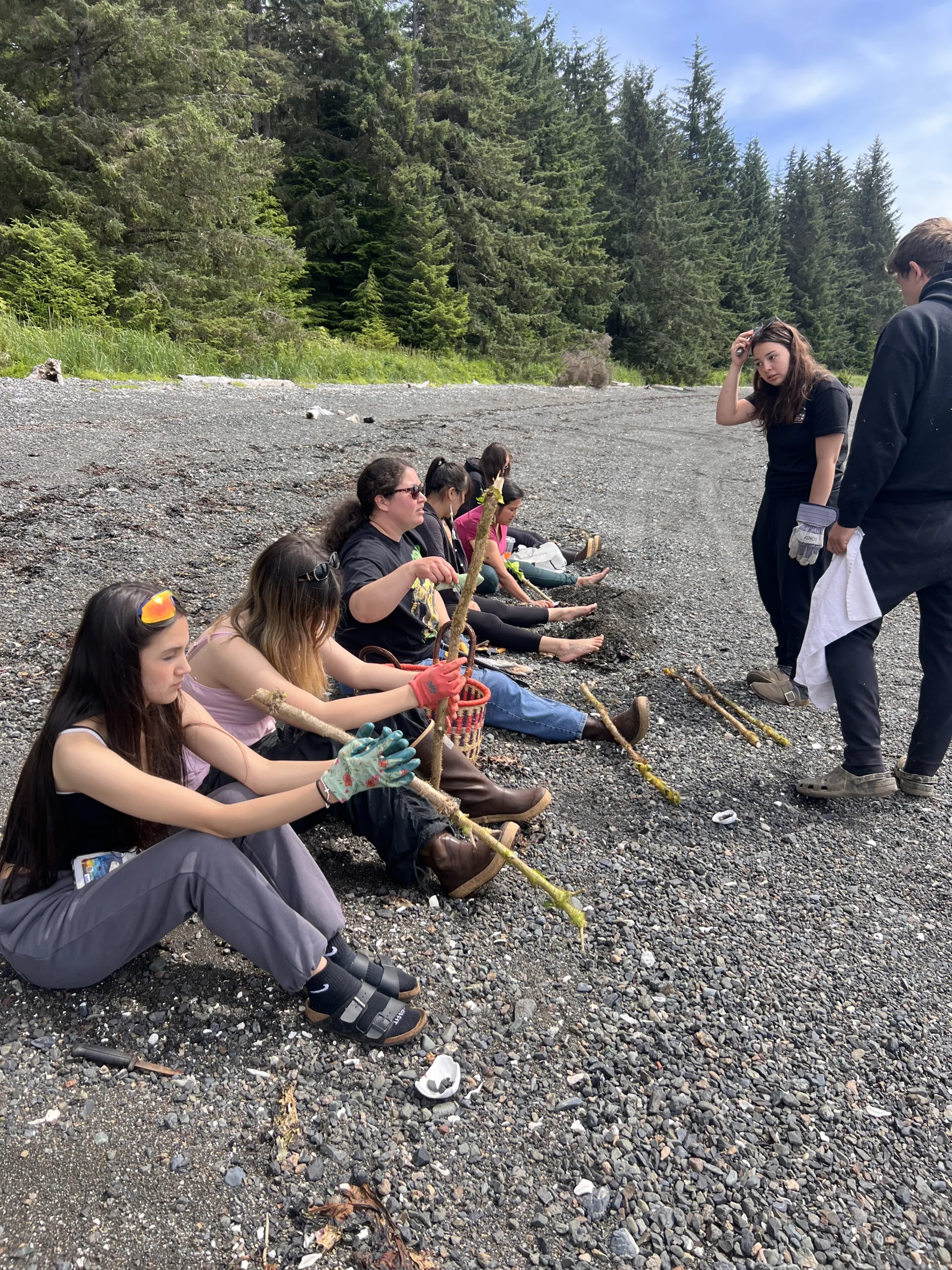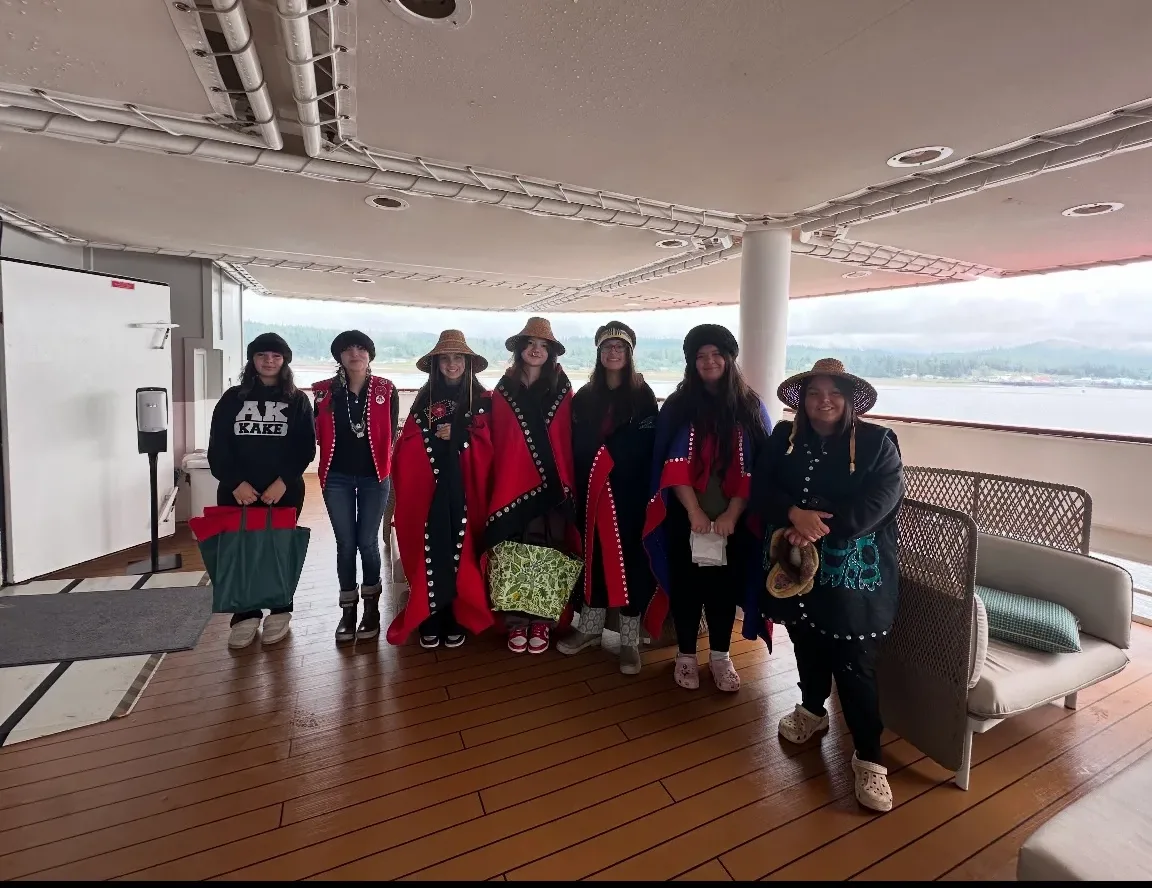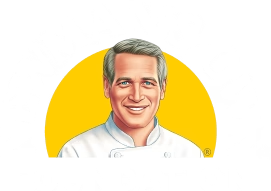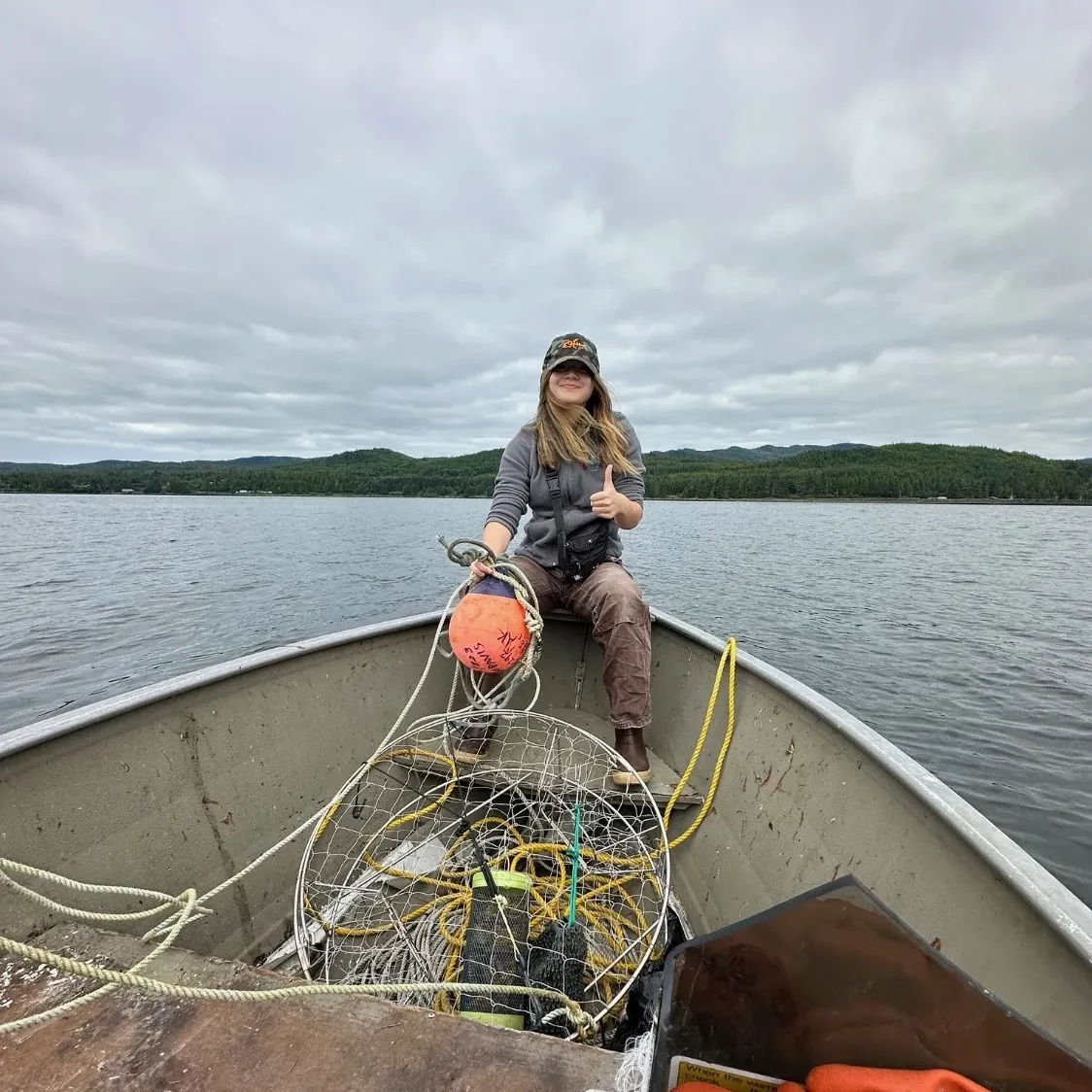“When you’re going through something, you can lean on who you truly are.”
In the small rural community of Kake, Alaska, the annual Culture Camp has been a beacon of light for 37 years.
Lead by the Organized Village of Kake and supported by assistance of the Kake Tribal Heritage Foundation Interns, Culture Camp was founded out of darkness—a high rate of suicide in the community. Since it began in 1988, Camp has become a bedrock for generations of Tlingit young people to learn community values, get grounded in traditional food, and give back to their roots.
Kelli Jackson of Kake Tribal Heritage Foundation, a community member of Kake, knows that a sense of belonging positively impacts mental health for youth. “When you’re going through something, you can lean on who you truly are,” she shared. “The youth learn respect—respect for our food, respect for who they are.”
Living community values at camp
Kake’s Culture Camp offers a unique experience for Tlingit youth: a fully subsistence lifestyle. This means participants rely fully on the generosity of the community and the land—eating only what is donated or harvested. This year, approximately 80 day/overnight campers and interns worked with animals including fish, seal, sea lion, clams, gumboots, and plants like seaweed and devil’s club.
The weeklong camp is a device-free experience where youth kindergarten through high school are immersed in culture through song and dance. In addition to traditional food processing, Kelli also leads an immersive multi-day “Clue”-inspired game where students learn about the unique local community jurisdictions and practice accountability through traditional circle peacemaking.

Youth working on devil's club. Photo courtesy of Kake Tribal Heritage Foundation
Building Community and Building Leaders
Kake Tribal Heritage Foundation, the nonprofit arm of the Kake Tribal Heritage Corporation, has been a Newman’s Own grantee partner since 2022. They run the sought-after internship program for youth that supports Culture Camp.
Interns support hydroponic and community gardens, and are also fully responsible for the beloved Dog Salmon Festival—including harvesting, processing, and cooking a community meal. Ultimately, the aim of Kake Tribal Heritage Foundation is to create custodians of Tlingit cultural legacy.
The ripple effect of the youth internship is felt in the community. “I’ve seen students grow from not know what they are doing, to actually becoming teachers themselves,” Kelli shared. “Students come back and create their own initiative—they don’t stop because the internship is done. This internship is building community and building leaders.”

Photo courtesy of Kake Tribal Heritage Foundation


